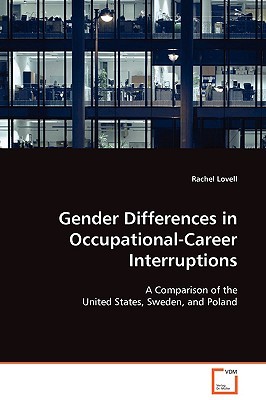
- We will send in 10–14 business days.
- Author: Rachel Lovell
- Publisher: VDM Verlag
- ISBN-10: 3639110919
- ISBN-13: 9783639110913
- Format: 15.2 x 22.9 x 0.8 cm, minkšti viršeliai
- Language: English
- SAVE -10% with code: EXTRA
Gender Differences in Occupational-Career Interruptions (e-book) (used book) | bookbook.eu
Reviews
Description
This book addresses the following research question: are there cross-national gender differences in the patterns and consequences of occupational-career interruptions? Interruptions include unemployment, illness/disability, parental leave, household time, care for other, schooling, retirement, and military service. To account for cross-national differences, I analyze panel survey data for the each country, U.S., Sweden, and Poland. Statistical techniques include descriptive statistics and change models. The results suggest a gendered nature to most interruptions. Interruptions can be gender-neutral (schooling, retire-ment, unemployment, and illness), female-specific (parental leave, household time, and caring for others), or male-specific (military service). Women and men experience variation in the consequences of the interruptions, depending on the interruption and institutional context. The greatest amount of gender equality in the wage con-sequences for unemployment and illness in Sweden, the least amount of gender equality in Poland, and in the United States, there is less gender equality than in Sweden but more than in Poland.
EXTRA 10 % discount with code: EXTRA
The promotion ends in 23d.10:21:44
The discount code is valid when purchasing from 10 €. Discounts do not stack.
- Author: Rachel Lovell
- Publisher: VDM Verlag
- ISBN-10: 3639110919
- ISBN-13: 9783639110913
- Format: 15.2 x 22.9 x 0.8 cm, minkšti viršeliai
- Language: English English
This book addresses the following research question: are there cross-national gender differences in the patterns and consequences of occupational-career interruptions? Interruptions include unemployment, illness/disability, parental leave, household time, care for other, schooling, retirement, and military service. To account for cross-national differences, I analyze panel survey data for the each country, U.S., Sweden, and Poland. Statistical techniques include descriptive statistics and change models. The results suggest a gendered nature to most interruptions. Interruptions can be gender-neutral (schooling, retire-ment, unemployment, and illness), female-specific (parental leave, household time, and caring for others), or male-specific (military service). Women and men experience variation in the consequences of the interruptions, depending on the interruption and institutional context. The greatest amount of gender equality in the wage con-sequences for unemployment and illness in Sweden, the least amount of gender equality in Poland, and in the United States, there is less gender equality than in Sweden but more than in Poland.


Reviews